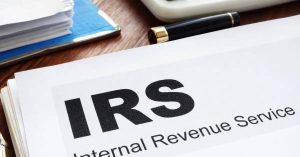If you are an investor looking to diversify your portfolio while helping the community, qualified opportunity funds are an excellent financial tool to look into. Not only does this help bring up lower-income areas, but it also provides you with massive tax benefits. Of course, with any investment, there are some risks to be aware of, but when used correctly, qualified opportunity funds can prove to be quite beneficial at the end of the day.
If you’re interested in qualified opportunity funds and how they can work in your favor, continue reading below! This brief QOFs guide will cover what you need to know about these funds, how the government uses them, their many benefits, and who you can reach out to for more information.
What Are Qualified Opportunity Funds?
Qualified opportunity funds, also known as QOFs, are used to drive real estate and business investments in economically distressed or lower-income areas. Investors who participate in qualified opportunity funds receive preferential tax treatment on their capital gains as an incentive from the federal government. These investors can then reinvest any profits into QOFs to defer taxes owed on those gains.
What Areas Qualify for Qualified Opportunity Funds?
There are specific qualified opportunity zones where investors can put their funds into a qualified opportunity fund. The United States Treasury Department has to certify the qualified opportunity zone which are recommended by the state. Once the United States Treasury Department approves and certifies the zone, investors can start investing in the businesses and properties within the opportunity zone.
How QOFs Work
QOFs are pools of money used to purchase specific properties within the opportunity zone. The money in these pools must make substantial improvements to those properties in an amount equal to the property’s value at the time of purchase. For example, if the QOF purchases a building for $500,000, the investment funds have thirty months to make at least $500,000 worth of improvements.
The main point of qualified opportunity funds is to incite economic growth through expanded housing options, job creation, and increased business activity. Some people argue that these types of investments only help real estate investors, whereas others state that these types of investments do help the community and the surrounding communities.
Benefits of QOFs
If you’ve recently sold an asset, such as a real estate or a business investment, and you have a significant capital gain tax liability you need to deal with, you can roll the gains into a QOF. When you do that, you not only defer and reduce your capital gains tax liability but also make a positive impact while diversifying your portfolio.
Defer Until 2026
Investing in qualified opportunity zone funds gives you the opportunity to defer paying taxes on those capital gains until 2026. This means that when you file in 2026, you won’t have to pay your tax liability until the tax year 2027.
Greater Overall Tax Benefit
If you can hold onto your investment for a long time, you get a greater overall tax benefit. For example, if you keep your investment in the qualified opportunity funds for over five years, you increase your cost basis by 10%. Increasing your cost basis by 10% excludes you from having to pay 10% of your realized gains.
Holding the investment for seven years can increase the cost basis up to 15%, and if you hold onto it for longer than ten years, you won’t have to pay any capital gains. You also won’t owe any additional appreciation beyond what you must pay in 2027.
Diversified Portfolios
As mentioned earlier, when you participate in qualified opportunity funds, you diversify your portfolio. You can branch into investing in a startup business or real estate in these opportunity zones. You have the opportunity to choose from multi-asset funds or single asset investment opportunities across different zones.
Taxing Qualified Opportunity Funds
As with any tax breaks, there are specific terms and conditions you must adhere to. For example, with qualified opportunity funds, you must reinvest your eligible gains into the QOF within 180 days from the realized gain.
It is also essential to note that not all gains are eligible for the reduced tax liability. Only qualified 1231 gains or capital gains are recognized for the tax liability reduction.
Depending on the type of qualified opportunity fund, they may require you to be an accredited investor to participate. Accredited investors have an earned income of at least $200,000 and a net worth of at least one million dollars in investable assets.
Who Can Invest in Qualified Opportunity Funds?
Anyone can participate unless the QOF specifically states that you need to be an accredited investor. This means any individual, corporation, or partnership can participate.
You can do so if you have a trust that you wish to direct towards a qualified opportunity fund. To ensure that you receive the most of your tax benefit when using a trust, check in with a tax professional or attorney for more information.
Can You Use Ordinary Income?
Per the Internal Revenue System, you cannot use any ordinary income to invest in qualified opportunity funds.
Ineligible sources of income:
- Wages
- Dividends
- Business income
- Rental income
- Interest
The only income you can use has to come from your capital gains. This could come from capital gains from an investment or a real estate investment.
What Businesses Do Not Qualify for QOF?
Certain businesses do not qualify for the opportunity funds, even if they are within the qualified opportunity zone. For example, if there is a liquor store or a country club or course within the opportunity zone, they do not qualify.
Other businesses that don’t qualify:
- Massage parlors
- Racetracks
- Facilities used for gambling
- Suntan locations
- Hot tub facilities
When looking for businesses to invest in, the United States Treasury should be able to point you in the right direction.
Where To Find QOF Zones
To find a qualified opportunity zone near you, you will have to look at the United States Department of Treasury’s website list. They update the list often, and the zones are identified by their state and county.
Each zone has its own census tract number, which correlates to a specific address. For example, the area impacted by Katrina has its own opportunity zone called the Gulf Opportunity Zone. This supports areas in parts of Mississippi, Louisiana, and Alabama.
Section 1031 Exchange vs. QOFs
Investors familiar with 1031 may think that qualified opportunity funds are similar to 1031, but there are significant differences between the two. For example, the rollover for the two differs.
With Section 1031, you must reinvest the capital gains and principal gains within 180 days. With a QOF, you only need to roll over the capital gains within those 180 days. This means that you can use the principal gain for whatever you want.
Capital Gains Tax Deferral
Investors with capital gains from a qualified opportunity fund from the initial investment can defer their tax liability until the end of the 2026 tax year. With a 1031, investors can defer their tax liability indefinitely.
Investment Structure
Qualified opportunity funds can be used to invest in multi-asset or single-asset funds, funneling the money into a single business or real estate property. Section 1031s allow for multi-asset investments but typically come with less flexibility and higher costs. Instead, Section 1031 exchanges are best for single assets.
Capital Gains on Final Sale
QOFs don’t have any capital gains tax on the appreciation of the investment so long as you hold onto your investment for at least ten years. With a 1031 exchange, you owe capital gains tax on the final sale.
Location of the Investment
As you now know, qualified opportunity funds are only for investing in opportunity zones approved by the United States Department of Treasury. So your QOF investment can only be in those approved zones, which a majority of these zones are lower-income areas.
1031 exchange investments can be anywhere in the country. There isn’t a restriction.
How To Defer Qualified Opportunity Funds
If you’ve invested in a qualified opportunity fund, you may wonder how to handle the paperwork associated with deferring what you invested. Handling the paperwork alone may not be easy, especially if you aren’t sure what to look out for. If you incorrectly report the capital gains rolled over into the QOF, you may end up paying the tax liability when you aren’t supposed to.
Should I Hire a Tax Professional?
Qualified opportunity fund investments are not simple to report like other investments. To ensure that you are compliant and don’t pay unnecessary taxes, you may want to reach out to a tax professional such as a CPA or a tax attorney to help you sort out your documents.
Before investing in a qualified opportunity fund, you should reach out to a tax attorney or professional to look over your tax strategy. They can help you locate the best zones for your capital gains rollover to maximize your tax bill.
Helps With Audits
In the event that the IRS audits your tax return, you should reach out to a tax attorney to help you work through that. You may have inaccurately reported your investments, which could trigger an audit. To avoid this, work with your tax professional as soon as possible to ensure you stay compliant.
How To Find the Right Tax Attorney
There are several qualified tax attorneys out there that can help you with your qualified opportunity fund investment options. When trying to find the right one, there are a few things to look out for. For example, you want to ensure you work with an attorney who is well versed in QOFs and their tax liabilities.
When you find a few attorneys you wish to work with, look at their portfolio and results. If they don’t have anything posted on their website, reach out to them and ask them if they have experience with qualified opportunity funds.
Check Their Reviews
In today’s day and age, reviews can either help or hinder a business. Many people aren’t afraid to say what they like or don’t like about working with specific attorneys; you should use that to your advantage.
When reading reviews, please pay attention to what previous clients liked and did not like about working with their tax attorneys. See if there are any comments that are consistent across the board.
For example, did many people mention their attorney had good response times? Was there a general consensus that the law firm staff were or were not helpful?
Schedule a Consultation
The best way to get to know a tax attorney is to reach out to them. Reading online reviews can provide you with a good amount of information, but everyone’s experience is different. Most reputable and qualified tax attorneys offer free, no-obligation consultations, which can give you better insight into an attorney and their law office.
When you’re at their office, don’t hesitate to ask questions about your situation and how they can best help you. Pay close attention to your intuition also. If you don’t feel comfortable, you may want to seek out another attorney to interview.
Invest in Qualified Opportunity Funds
Investing in qualified opportunity funds helps the community and provides a tax benefit for you as an investor. There are several opportunity zones across the nation that you can invest in, and depending on how long you hold on to the investment, you could save on your tax bill. Contact us if you are interested in diversifying your portfolio with qualified opportunity funds or need help understanding how they are taxed; contact us!








